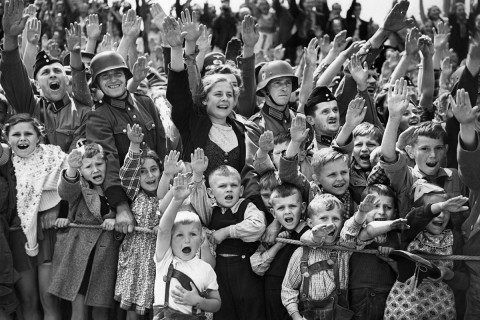Mental health and youth ministry
Last year a college student that I only knew briefly in high school committed suicide. Last month a young man that I knew much better when he was in high school also took his own life. (I was on vacation when this happened and couldn’t bring myself to write about it, but I very much appreciated this reflection from my friend and colleague Beth Merrill Neel.) I currently know two other young people who have either contemplated or attempted suicide within the past year. Add to these tragedies and near tragedies the increasing number of students dealing with anxiety, depression, eating disorders and other issues and you can understand why I’ve been thinking more about mental health and youth ministry lately.
So I jumped on the opportunity for my church's youth ministry staff to take a training recently on Youth Mental Health First Aid. The curriculum is designed to help youth workers provide first response care for young people demonstrating signs of mental illness or crisis. I found the day to be generally helpful, and the book they provide will be a good resource for further study.
Perhaps more than anything, the training has prompted me to think more about my role and the role of our youth ministry in mental health care and crisis management for the young people we work with. It seems to me that there are two primary functions.
First, there is the first aid model I learned about at the training. These are skills that every youth worker ought to learn and practice. I will be thinking about ways to provide such training for our volunteers. Parents would also greatly benefit from it. Coupled with a relational approach to youth ministry, this kind of mental health first aid provides young people with a broad network of adults who care about them and can potentially identify problems and act quickly to prevent a crisis or tragedy. The relational piece is critical because youth need to trust us and we need to have enough time invested in them to pick up on signs and symptoms.
Second, there is what I consider a chaplaincy function. The first aid toolbox is helpful for emergent crises, but what is the long-term role of youth pastor and youth ministry in the lives of young people (and their families) dealing with mental health issues? It seems to me it is essentially the skill set pastors learn during Clinical Pastoral Education. The Loyola University Institute of Pastoral Studies describes chaplaincy in this way:
Chaplains attend to sacred stories of those confronting change in their lives. As the patient struggles to find meaning, relationship with God, as well as sense of identity and self-worth, come into question. The chaplain is trained to listen to the patient’s story, to be present to the patient’s values, and to reframe the crisis in the context of these values.
This is what I learned to do during CPE. I was one of the few students in my cohort who regularly asked the question, “Where do you think God fits into your situation?” As I understand it, my role as chaplain is to offer the opportunity and provide resources for people in the midst of a crisis to think theologically about what they are experiencing. While pastors have both training in this and the luxury of continuing theological reflection, and will therefore likely be the primary chaplains, my sense is that lay leaders can fill this role as well.
Again, all of this requires a relational approach to youth ministry, which is something my team at the church is working on strengthening.
What do you think about the way I’ve framed this? Do you have other thoughts on mental health strategies for youth ministry, or the wider church?
Originally posted at Vest's blog





